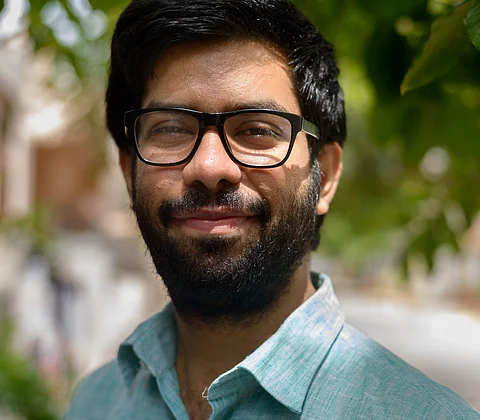

Last year the Mental Healthcare Act 2017 was passed by the Lok Sabha and under its provisions, universal mental health care was made a justiciable right. According to the latest National Mental Health Survey, 2015-’16, almost 150 million Indians need mental health care services however, less than 30 million are seeking it. While policy changes by our central government develop gradually, there have been various attempts to change the narrative. One such is psychologist Paras Sharma's podcast The Alternative Story, which digs deep into the complex and often stigmatised subject of mental health in our country.
Paras, a resident of Bengaluru, started his podcast in April 2018 with the intention of enabling as many people as he could to access therapy. "In my understanding as a mental health professional, there are two chief factors that come in the way of someone accessing mental health care. First, is access - as in, there aren’t enough mental health professionals available around me if I want to access one, and the ones that are available are often saturated (in case of public hospitals and NGOs) or are beyond my reach in terms of affordability," says Paras.
The Alternative Story is a DIY-style podcast as there’s no production budget, formal scripting or editing and it is available on Soundcloud. Also, one-third of all counselling slots at The Alternative Story are offered on a pay-what-you-want basis to make it more accessible and at the same time affordable.
"Our #PayWhatYouWant initiative wherein we offer low-cost counselling to enable people to start and continue being in therapy addresses this first challenge of accessibility. The second big challenge I think is stigma and lack of awareness. As young entrepreneurs trying to change the narrative, the only medium directly available to me was my voice on social media. I started off taking questions on mental health on my Twitter and doing detailed threads to answer these questions," explains Paras and adds "Soon, people started asking me to compile these in the form of a blog post. I knew though that the general trend in terms of how people consume content now is shifting from text articles to rich media. Hence, I decided to experiment with the idea of a podcast. I did my first episode on the links between capitalism and mental health, and the response to it, both in terms of feedback on social media, as well as in terms of people reaching out for therapy as a result of listening to the podcast, was fantastic. There’s been no looking back since then."
Each podcast is between 15 to 30 minutes long and it is not your regular self-help kind of a podcast wherein they talk about a mental health related concern and give tips.
Each episode of the podcast therefore not only talks about the social and cultural politics around a particular topic but also the prevalent psychological approach to helping those who come with these concerns for help.
Paras provides us with an example wherein the first episode on Capitalism and Mental Health, he says, "the initial part of the podcast actually tells the reader that Psychology as a discipline evolved most rapidly during the World War II, in order to help armies select the right kind of individuals to go to war and use overt and subliminal messaging to drive propaganda into their minds. That psychology possesses the power to do so cannot be ignored in the present day as well. The podcast goes on to talk about how capitalism normalizes poor mental health as a sign of working hard, and how counselling as a discipline encourages people to ‘adjust’ to this reality. The subsequent episodes on Self-Compassion and Anxiety also follow a similar trajectory."
Paras generally picks the themes of the episodes based on the feedback he gets on his Twitter. "The frequency originally planned was once a month, but we are recording the rest of the first season right now, so we can take that frequency to once in 10 to 15 days," he adds.
Paras, who is a counselling psychologist, has a Master’s Degree in Counselling, and a Doctoral Scholar researching Body Image and Identity, says that things are changing for the better.
"The general scene regarding mental health in our country is certainly changing for the better in urban and semi-urban areas. There is a greater conversation about depression, anxiety and suicides now in workplaces, as well as schools, colleges, and avenues of higher education than a decade ago when I was studying to become a Counselling Psychologist. There is a great deal of investment interest in the area of mental health and there is serious money being pumped into the domain of telemedicine and telehealth. The tools to help people to access healthcare remotely are being put into place and brands like Practo, JustDial etc are being used by users to look for physical and mental health professionals all the time," he concludes.
